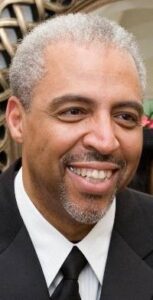

Livingston Holder is an aerospace engineering executive with 40+ years’ experience in systems planning, design, development, operations, and management. His USAF experiences range from serving as a satellite launch officer, to developing classified satellite systems, to training to fly as a Manned Spaceflight Engineer (USAF Payload Specialist / Astronaut) for a classified shuttle mission that was cancelled after the Challenger accident. His industry experience started with Boeing where he supported the development of the ISS, leading their International Integration team, developing crew modules, and developing prototype international IVA and EVA protocols for future crews in a neutral buoyancy training environment. Livingston co-founded Holder Aerospace to support technical and business development for large and small businesses alike. This work has resulted in the development of novel propulsion systems, techniques for large scale launch vehicles to be deployed from cargo aircraft, and the production of privately operated human rated altitude chambers for research and development.
His success across a broad range of organizations and technologies has given Livingston a deep appreciation for the role education served in his life and the value it can provide to others. Accordingly, he has always encouraged youth seeking educational growth, especially those from historically disenfranchised communities.
His motto, “It’s good to know how things work!” applies not only to technical systems, but political and human endeavors as well. His fundamental belief is that we should strive to understand our universe as well as ourselves, which will aid our quest to improve life for all of us.

What is your background, where did you grow up?
Born in Detroit MI, moved to Louisville, KY for grades 1-12.

When did you first become interested in space?
I had a strong interest in science in grade school starting with a moving model of the solar system that was in the back of my classroom.
I kept track of each NASA mission on my radio, TV news and anytime there was a live broadcast. Apollo 11 was the culminating event for me.

What do you think the biggest issue facing the industry today?
The US struggles with sustainable national direction and many countries take their lead from the US. Each US administration feels it must put its stamp on what we do as a nation in space, forcing changes in direction every 4-8 years which leads to inconsistency of purpose and a lack of mission continuity. The introduction of commercial services has helped, but it is still an uphill battle as the government is a large consumer of space services and in many ways drives what commercial services will be offered. The US is in the best position to provide global leadership, but when it does not, progress around the world slows.

What do you like to do for fun?
I enjoy working in my yard. I have a couple of acres and tending to the lawn and plants is very relaxing for me. I’m somewhat of a homebody.

What is your favorite movie and why?
I think 2001 is still my favorite movie. I saw it when I was young and could see the possibilities of going to other planets in our solar system and exploring the mysteries of the universe. It was also beautifully shot.

What are some of your favorite books?
Generally, I enjoy science fiction, but have been reading more historical accounts of people and events that have had a large impact on society over time.
I really enjoyed Charles Dulfer’s, “Hide and Seek: The Search for Truth in Iraq.” I know Charles and have an appreciation for what happens behind the scenes and the impact of global decision making, coupled with hubris and fear.
Andy Weir’s, “The Martian” was fun as the engineering behind the story was well thought out.

What are you reading now?
I just finished Rachel Maddow’s “Blowout: Corrupted Democracy, Rogue State Russia, and the Richest, Most Destructive Industry on Earth.” The arc of history is long, and we rarely understand the impact of our decisions on future generations or the health of our planet mixed with the corrupting influence of money over moral and ethical behavior. We cannot often predict the long-term impact of our decisions but must do so for the sake of future generations.
I also just finished Robert Coram’s “Boyd: The Fighter Pilot Who Changed the Art of War.” The story of a fighter pilot driven by insecurity and the desire to change fighter tactics, fighter aircraft and eventually how we think about warfare and the growth of the individual.

Where do you see the space industry in ten years?
This is a tough one. While generally optimistic, I’ve watched the space industry languish in the doldrums for years, making small, incremental changes over long periods. Nationally, we operate in spurts and often run out of energy well before we accomplish a goal. Because the time to fruition is long and the expense high, it is difficult for novel space projects to reach maturity.
This is where the US government has an outsized influence on the industry. Our wealth permits us to create breakthroughs, but our lack of resolve leaves many technically achievable advancements unmet. Unfortunately, I see more of the same. Scientists will fight for budget for new space exploration systems and succeed periodically creating an ebb and flow of scientific achievement that matches the funding garnered in previous administrations. The Commercial satellite industry will be dominated by the large geo-comms for revenue generation, but larger constellations of smaller satellites will generate revenue of their own as they find their way into usable lanes of value. Space transportation, which influences everything else that happens in space, is on the edge of a number of breakthroughs, but we have a terrible habit of throwing away our advanced work to retrench into safer technologies.
The X15 flew 199 missions and advanced our knowledge of high altitude, supersonic flight, only to be tossed aside in favor of putting men into capsules on top of IRBMs and ICBMs. We then advanced the vertical launch technology for years until we broke through with the shuttle, drawing from our X-15 knowledgebase. Most civil and a lot of military space transportation resources were turned toward that efforts, but after two tragedies, rather than leveraging our learning from that program, we leapfrogged backwards to traditional launchers, mothballing what we learned from that program, creating EELV and the Constellation Program, spawning the Ares launch vehicles and finally SLS. The only novel advancement came with SpaceX choosing to reuse its boosters on traditional rockets with updated technology. I don’t see us escaping this pogo stick approach to the spaceflight industry unless there is a breakthrough that leverages all of our past learning to push the industry forward. I believe that the elements for such a breakthrough are there, but the question is, will we achieve the activation energy to transform into a new transportation state? If we do, then everything we do in the space industry changes dramatically. I am hopeful that we will get there in the next 10 years.

What would you tell people just starting out in the space industry?
Find what you enjoy and do it. Learn all you can about how we got where we are today and figure out a way to make the future better with your knowledge. The space industry tends to move slowly but has spurts of thrilling advancement. It is worth the wait for the periods of advancement. Persevere!

